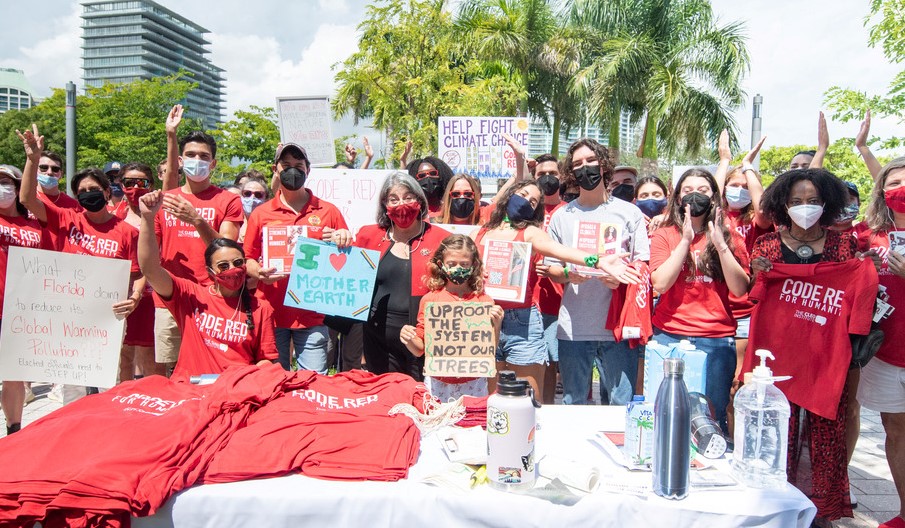
A group of activists including students from the University of Miami attended a budget hearing on Sept. 13 held by the City Commission of Miami to protest budget cuts in the Office of Resilience and Sustainability. The office is a division of the department of public works that guides the city’s climate change mitigation efforts.

The new budget was going to necessitate layoffs, but the support of attendees helped lead the commissioners to pass a budget that includes provisions for three new full-time hires intended to bolster the office’s climate control efforts.
Nicole Gazo, a sophomore studying political science, was one of the students who attended the hearing. Gazo said she attended because of her love for the city of Miami and her desire to preserve it for future generations.
“I was born in Miami and I want to die in Miami, and so the fact that a few corporate industries and CEOs are literally causing my own city to be at risk of turning into Atlantis infuriates me,” Gazo said. “I really just want to be able to raise a family and give my children the same Miami that I’ve seen.”
She heard about the budget hearing through her work with the CLEO Institute, a local non-profit organization that dedicates its work to fighting climate change through education and advocacy.
“CLEO really invited us and got us out there and supported us with talking points, and literally met with us in a meeting before just to go over what you wanna say, how it works,” Gazo said.
Gazo is currently enrolled in a UM course on activism, and said the class helped prepare her to get involved. Her teacher Calla Hummel, an assistant professor in UM’s department of political science, canceled class on the day of the hearing so her students could attend.
“Honestly, having Dr. Hummel not only listening to me, but fully supporting me and extending the opportunity to everyone in my class was so beautiful and shows that for her, her job is so much more than making money and teaching us,” Gazo said. “I felt so supported and heard.”
With students in attendance, the commissioners voted to increase the budget for the office. The change will allow for more innovative projects centered around climate control, something the city has struggled with in the past, a worker within the department said.
“Once positions are added it is very difficult to remove them, so once they are approved and people are hired the department will probably only grow from here on out,” said Alissa Farina, a UM alumna and the resilience programs manager for Miami’s Office of Resilience and Sustainability. “This additional staff capacity just means that we can do more and that we can do more in the short term, which is great.”
Both Miami and Miami Beach are part of 100 Resilient Cities, a network of 100 cities selected by The Rockefeller Foundation pledging to bolster community resilience against physical, social and economic challenges. As part of the pledge, the two cities and Miami-Dade County formed the Resilience305 Strategy, a living document that addresses the various barriers to building community resilience through collaboration within the government and the community.
“Miami is one of the cities on the forefront of the climate crisis, and people worldwide look to the City of Miami and Miami-Dade and the City of Miami Beach to see what we’re doing and how we’re addressing this issue,” Farina said.
The Aspen Ideas: Climate conference will be held by the Aspen Institute in Miami next March. The Aspen Institute is an organization that works to address a variety of public policy issues and hosts the annual Aspen Ideas Festival to bring experts together in search of solutions. Topics discussed will include energy, sustainable food and agriculture and community resilience.
Sandra St. Hilaire and Galen Treuer, two UM alumni now working as resilience coordinators for Miami-Dade County, encouraged students to get involved to help effect the change they want to see. For students that would like to get involved, volunteer opportunities are offered by various local organizations focused on environmental work and activism in the local community, like the CLEO Institute, Miami Waterkeeper, CatalystMiami and Debris Free Oceans, among others.
“I think a great place to start is with some of the not-for-profit organizations that we have here in the county. We’re really lucky in Miami Dade to have this amazing rich ecosystem of not-for-profit organizations who are working on environmental issues, climate issues and social justice issues,” St. Hilaire said.





